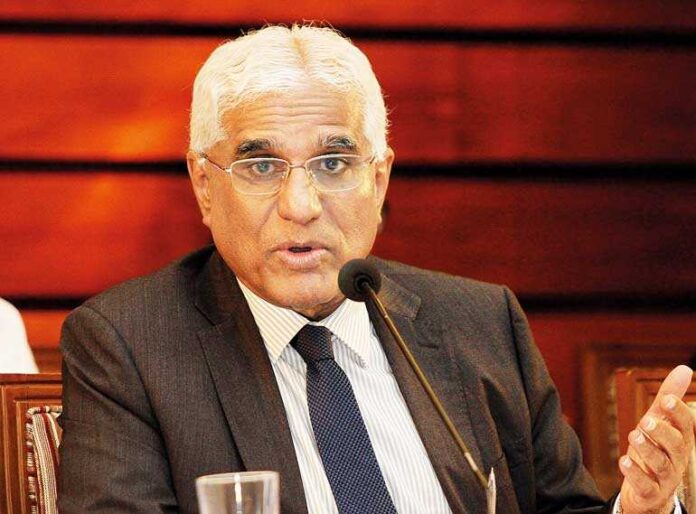July 16, Colombo (LNW): Dr. Indrajit Coomaraswamy, former Central Bank Governor, expressed concerns over the Debt Sustainability Analysis (DSA) for using a conservative growth rate for Sri Lanka’s economy.
He argued that this conservative projection, alongside the reopening of credit lines to the government, should facilitate a higher growth trajectory.
Speaking at a virtual investor event on 9th July, hosted by CT CLSA and titled “Unlocking Potential: Sri Lanka’s Shift from Stability to Growth,” Dr. Coomaraswamy remarked, “If we maintain macroeconomic stability and implement structural reforms, coupled with the economic momentum in India, we can exceed a 3% growth rate.”
Sri Lanka has progressed significantly in its debt restructuring efforts, with recent agreements reached with International Sovereign Bond (ISB) holders and bilateral creditors.
Dr. Coomaraswamy praised the Sri Lankan authorities for their skilful negotiations, which have advanced the country towards completing its external debt restructuring.
He highlighted that bondholders had made concessions beyond their initial demands, reflecting the effective negotiation skills of Sri Lankan officials.
Emphasising the need for macroeconomic stability, structural reforms, and capitalising on opportunities from neighbouring India, Dr. Coomaraswamy stated that these elements are crucial for surpassing the 3% growth rate.
He noted that while the agreement with bondholders and other creditors aligns with the DSA targets set by the International Monetary Fund (IMF), it is imperative to exceed these targets to ensure sustainable growth.
A key aspect of Sri Lanka’s economic strategy is achieving a primary surplus target of 2.3% next year. Dr. Coomaraswamy underlined the importance of meeting this target to avoid another round of debt restructuring.
He pointed out that enhancing tax revenue through improved administration and the removal of tax concessions could significantly bolster the country’s fiscal health.
The objective is to elevate the tax revenue to GDP ratio beyond 15%, providing the financial stability needed to support growth initiatives.
Gregory Smith, World Bank Lead Economist and Program Leader for Sri Lanka, Nepal, and Maldives, noted the political infeasibility of fiscal contraction.
Smith commented, “In Sri Lanka, you have 14% of GDP as revenue, and if you take out 7% as interest costs, you are left with 7% of GDP for public services. That’s just a recipe for protests and is not politically feasible.”
Sri Lanka possesses unutilised credit lines and robust bilateral ties that can be leveraged to maintain infrastructure investments at optimal levels.
While lending has been paused due to the ongoing debt restructuring, major lenders have not indicated any reluctance to restart or implement projects.

